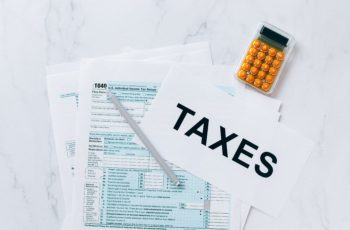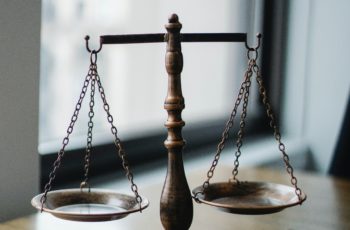Case Analysis of D.K. Gandhi PS vs. M. Mathias, (2009) 2CompLJ468 (NCDRC)
INTRODUCTION
Decided on 06.08.2007
Consumer Dispute Redressal Commission adjudicates various disputes including deficiency in any services rendered to them. The term service defined under Section 2(1)(o) of Consumer Protection Act, 1986 (hereinafter referred as the Consumer Act) is quite wide however, conundrum exists as to whether legal services rendered by advocates should come under the ambit of Section 2(1)(o). In other words, whether clients can bring lawyers before consumer forums for showing deficiency in their services.
Earlier, in the case of Rangaswamy Vs. Jaya Vittal [1]Rangaswamy Vs. Jaya Vittal, I (1991) CPJ 685 (NC), the National Consumer Dispute Redressal Commission (NCDRC) held that services rendered by advocates do not come under the ambit of Section 2(1)(o) and therefore, consumers cannot claim remedy against advocates under the Consumer Act [2]http://www.penacclaims.com/wp-content/uploads/2020/05/Parvathi-Warrier.pdf. On contrast, in the case of Srimathi Vs. Union of India [3]Srimathi Vs. Union of Inida, (1997) 5 CTJ 99, the Madras High Court held that Section 2(1)(o) is wide enough to include legal services and therefore, advocates can be sued under the provisions of the Consumer Act. The same issue had come up in the case of D.K Gandhi Vs. M Mathias [4]D.K. Gandhi PS Vs. M. Mathias, (2009)2CompLJ468(NCDRC). The issue is still unsettled and it will remain so until the Supreme Court clarifies.
FACTS OF THE CASE
The complainant availed the services (legal services – Advocacy) of the respondent in the year 2006. The respondent resolved the dispute of the complainant and the settlement amount was with the respondent. The respondent did not handover the same to the complainant and demanded the complainant for an additional amount. For the said reason the complainant filed a case against the respondent before the Delhi State Commission. The State Commission dismissed the case by holding that advocates do not come under the ambit of the Consumer Act. Aggrieved by the order, the complainant appealed to National Consumer Dispute Redressal Commission.
The NCDRC interestingly reversed the order given by the Delhi State Commission and held that advocates do come under the ambit of the Consumer Act and that clients can file consumer disputes against their advocates if any deficiencies exist in their services. The NCDRC directed to transfer the matter back to the Delhi State Commission to decide the matter on merits. Aggrieved by the order, a group of advocates along with the respondent appealed to the Supreme Court against the order given by the NCDRC and in the year, 2009, the Supreme Stayed the order in the case of Bar of Indian Lawyers Vs. D.K. Gandhi [5]Bar of Indian lawyers Vs. D.K. Gandhi, MANU/SC/0950/2009 but unfortunately, the Apex Court has not yet provided a clarification on the issue.
ISSUES
1. Whether services rendered by advocates fall under ‘contract of personal service’?
2. Whether Advocates Act, 1961 bars the applicability of consumer Act on disputes between clients and their advocates?
3. Whether a client authorising an advocate to represent him/her before a forum is a unilateral contract?
4. Whether clients fall under the definition of consumer under Section 2(1)(d) of the Consumer Act?
CRUX OF THE JUDGEMENT
The members of the NCDRC were of the view that the order issued by the Delhi state commission is completely misleading and subsequently, declared that the ambit of Section 2(1)(o) of the Consumer Act is so wide that it includes every service except services that are of personal contract or commercial nature. The commission relied on the case of Lucknow Development Authority Vs. M.K. Gupta, whereby the Apex court held that the definition of the term “service” is wide enough and also that it should be understood with the context.
Furthermore, the members of the NCDRC observed that the definition has three parts. The main part, inclusive part and finally, the exclusionary part. Moreover, it observed that the main part of the definition is itself is so wide. It emphasized upon two words: “any” and “potential” and that these two words are very wide. Then the commission referred dictionary meaning of any to explain its meaning and observed that its meaning depends upon the context. Ultimately, the commission held that the context in which the term “any” has been used in the definition under Section 2(1)(o) shows that it has a wider spirit.
Then the commission emphasized that the advocate rendering legal services is not contract of personal service but rather a contract for service. It is pertinent to note that the definition of the term service excludes any service that is free of charge or a contract of personal service. Legal services at least in the present case rendered by the respondent does not come under a service that is free of charge since the respondent charged fee for his service. Therefore, the commission held that it is impossible to exclude the services of the lawyer from the definition under Section 2(1)(o).
The next, the NCDRC went on to criticise another observation made by the Delhi State Commission that when a client authorises an advocate to represent before a forum, there is not any contract that imposes liability on the advocates if the client had suffered from deficiency in their services. The NCDRC observed that the advocates may not take responsibility for a favourable decision for the client since the decision making is not only in the hands of the complainant’s advocate as it depends on the inputs from the advocate of the other side and the judges.
However, if an advocate showed any deficiency in his/her services and charged a fee for rendering such services, then the advocate can be tried under the Consumer Act. This is because the Consumer Act is a welfare legislation and the clients should not be seen helpless against their advocates. The forum relied on the case of Kishore Lal Vs. Chairman, Employees’ state insurance [6]Kishore Lal Vs. Chairman, Employees’ state insurance corporation, (2007) 4 SCC 579wherein it was observed that in many decisions, the jurisdiction under the Consumer Act has been construed liberally owing to the fact that it is a beneficial legislation. This would provide justice to the helpless against giant businesses.
Finally, The NCDRC went on to differ from another opinion of the Delhi state commission that the act of a client authorising an advocate to represent before a forum is unilateral in nature. The NCDRC rejected this stand and held that such an act would be bilateral for there is a possibility that the client may change the advocate after discussing with him or the advocate may not accept to represent him. Not to mention, the advocates get paid, as well, to represent their clients. Therefore, it cannot be considered as a unilateral contract.
DETAILED COMMENTARY ON THE IMPORTANT ISSUES
1. Whether the services rendered by advocates fall under the ambit of ‘contract of personal service’?
One of the main issues in this case was whether the services rendered by the advocates fall under “contract of personal service”. The similar issue was raised earlier in the case of Rangaswamy Vs. Jaya Vittal [7]Rangaswamy Vs. Jaya Vittal, I (1991) CPJ 685 (NC) wherein advocate allegedly prolonging the case on purpose in order to demand more money from the client, and therefore, the client filed a complaint against the advocate for professional misconduct before the consumer forum.
After hearing both the parties, the NCDRC categorically stated that the services rendered by the advocate do come under the ambit of “contract of personal service” and consequently, it is excluded from the term service defined under Section 2(1)(o) of the Consumer Act. In addition to that, the NCDRC was of the opinion that the client or the complainant does not come under the ambit of consumer defined under Section 2(1)(d) of the Consumer Act and also, the dispute between the complainant and the respondent does not fall under the term consumer dispute.
In order to understand the concept of ‘contract of services’ and ‘contract for service’ the case of Indian Medical association Vs. V.P. Shantha and ors. [8]Indian Medical Association Vs. V.P. Shantha and ors., MANU/SC/0836/1995, can be referred. In this case, the court stated that the ‘contract for services’ refers to professional or technical services and during the course of the service, the service provider is allowed to use his technical or professional skill and not to mention, he could use his own knowledge and discretion to achieve the ends. Whereas the term ‘contract of service’ refers to a master-servant relationship or an employment contract [9]Supra note 2.
Furthermore, it is pertinent to note that the case of Indian Medical Association Vs. V.P. Shantha discusses on the issue of applicability of the Consumer Act on the medical profession. In this case, the Apex Court held that medical services may seem like a contract of personal service since to some extent, mutual confidence and trust exists between medical practitioners and their patients, but it is significant to note that the relationship between them is not master-servant relationship, and hence medical services shall not come under ‘contract of personal service’ but come under ‘contract for service’.
In that case, it was observed that the legislative draftsman was completely aware of this difference and he deliberately mentioned the phrase ‘contract of service’ in the exclusionary part of the definition under the Section 2(1)(o). This implies that any ‘contract for service’ is included under the definition of service. Therefore, going by the previous statement, medical services are included in the definition of service.
In the case of D.K. Gandhi, the members of NCDRC applied the same principle and held that the services of advocates fall under “contract for service” since clients and advocates do have come mutual confidence and hence, such legal services are also included in the definition of service under Section 2(1)(o). In addition to that, in Srimathi case [10]Srimathi Vs. Union of Inida, (1997) 5 CTJ 99, the NCDRC referred to the wide scope of the main part of the Section 2(1)(o) and that it is enough to include legal services rendered by advocates. This implies that any kind of deficiency in service by advocates can be brought before consumer forum but however clients cannot sue their advocates for losing the case.
2. Whether Advocates Act, 1961 bars the applicability of consumer Act on disputes between clients and their advocates
The above issue is not a direct issue that is dealt in the D.K. Gandhi case but one of the highly relevant issues when dealing with the applicability of the Consumer Act on professional misconduct, and the issue was extensively dealt in the case of Srimathi Vs. Union of India [11]Ibid wherein the NCDRC held that the advocates can be brought before consumer forum for showing deficiency in their services [12]http://www.penacclaims.com/wp-content/uploads/2020/05/Parvathi-Warrier.pdf. Here in this case, the complainant challenged the validity of Section 3 of the Consumer Act, which talks about Act not in derogation of any other law.
The petitioners contended that Section 3 of the Consumer Act is unconstitutional as it opposes the objectives of the Consumer Act. in addition to that, petitioners also argued that Section 53 of the Advocates Act deals with professional misconduct and therefore, they need not answer before the consumer forum. Furthermore, the petitioners contended that the they would not come under the ambit of Section 2(1)(d) of the Consumer Act.
The Madras High Court in this case held that it could not find any inconsistencies in the Section 3 with the objectives of the consumer Act. Moreover, the court declared that section 3 only stipulates that the Consumer Act would not override any enactment and that it would only be an additional remedy. The Court also held that by simply striking down Section 3 of the Consumer Act, the petitioner could not achieve their goal of taking away advocates from the purview of the Consumer Act.
Following that, the Court addressed the issue of conundrum exists in the Advocate Act, 1961. The petitioners relied on the case of Nathamal Ashok Kumar [13]Nathamal Ashok Kumar v. Western Railway, 1 (1991) CPJ 618 wherein the Railway claims Tribunal Act, 1987 explicitly bars other jurisdictions in certain specific matters. However, the court held that the above case is not relevant because the Advocates Act, 1961 does not bar any law for any offence. Therefore, consumer act can be an additional remedy for the clients.
With respect to final contention that clients do not come under the ambit of Section 2(1)(d), the Courts rejected the argument and held that the definition of consumer is wide and clients cannot be excluded from the definition. The court observed the particular line in definition of the consumer that “any person who avails services for a consideration” and consequently, the court also relied on the case of Lucknow Development authority [14]Lucknow Development Authority Vs. M.K. Gupta, (1993)1 CTJ 929 (SC) to show that the definition of service is wide and so is the definition of consumer to include clients. The court ultimately held that the clients can file case against advocates before consumer forum.
SUBSEQUENT DEVELOPMENTS AND CONCLUSION
This case of D K Gandhi is the pioneer case law that addressed the issue as to whether advocates are under the purview of the Consumer Act. Moreover, the Supreme Court had stayed the order given by NCDRC and notably, the Apex Court did not declare the final stand on the issue. However, the Union Consumer Affairs minister, Mr. Ram Vilas Pawan declared that service of lawyers would not come under the Consumer Act [15]https://www.republicworld.com/india-news/politics/no-proposal-to-include-lawyers-under-consumer-protection-act-says-ram.html.
One of the practical problems in including legal service under Section 2(1)(o) is that it gives client the opportunity to file case against their advocates for losing their cases which in turn would increase the burden of the consumer forum which is against the purpose of the establishment of such forums. Another argument is that the services rendered by advocates are not personal service but rather a service to assist judiciary in providing justice.

Yoganandam. A
4th Year, B.Com., LL.B (Hons), Tamil Nadu National Law University, Trichy
References
| ↑1, ↑7 | Rangaswamy Vs. Jaya Vittal, I (1991) CPJ 685 (NC |
|---|---|
| ↑2, ↑12 | http://www.penacclaims.com/wp-content/uploads/2020/05/Parvathi-Warrier.pdf |
| ↑3, ↑10 | Srimathi Vs. Union of Inida, (1997) 5 CTJ 99 |
| ↑4 | D.K. Gandhi PS Vs. M. Mathias, (2009)2CompLJ468(NCDRC |
| ↑5 | Bar of Indian lawyers Vs. D.K. Gandhi, MANU/SC/0950/2009 |
| ↑6 | Kishore Lal Vs. Chairman, Employees’ state insurance corporation, (2007) 4 SCC 579 |
| ↑8 | Indian Medical Association Vs. V.P. Shantha and ors., MANU/SC/0836/1995 |
| ↑9 | Supra note 2 |
| ↑11 | Ibid |
| ↑13 | Nathamal Ashok Kumar v. Western Railway, 1 (1991) CPJ 618 |
| ↑14 | Lucknow Development Authority Vs. M.K. Gupta, (1993)1 CTJ 929 (SC |
| ↑15 | https://www.republicworld.com/india-news/politics/no-proposal-to-include-lawyers-under-consumer-protection-act-says-ram.html |









 He holds a Bachelor’s and Master’s Degree in Corporate Secretaryship and a Degree in Law. He is a Fellow member of the Institute of Company Secretaries of India and an Associate Member of the Corporate Governance Institute, UK and Ireland. He has also completed a program from ISB on ‘Value Creation through Mergers and Acquisitions.
He holds a Bachelor’s and Master’s Degree in Corporate Secretaryship and a Degree in Law. He is a Fellow member of the Institute of Company Secretaries of India and an Associate Member of the Corporate Governance Institute, UK and Ireland. He has also completed a program from ISB on ‘Value Creation through Mergers and Acquisitions. Mr P Muthusamy is an Indian Revenue Service (IRS) officer with an outstanding career of 30+ years of experience and expertise in all niche areas of Indirect Taxes covering a wide spectrum including GST, Customs, GATT Valuation, Central Excise and Foreign Trade.
Mr P Muthusamy is an Indian Revenue Service (IRS) officer with an outstanding career of 30+ years of experience and expertise in all niche areas of Indirect Taxes covering a wide spectrum including GST, Customs, GATT Valuation, Central Excise and Foreign Trade. During his judicial role, he heard and decided a large number of cases, including some of the most sensitive, complicated, and high-stake matters on insolvency and bankruptcy, including many cases on resolution plans, shareholder disputes and Schemes of Amalgamation, De-mergers, restructuring etc.,
During his judicial role, he heard and decided a large number of cases, including some of the most sensitive, complicated, and high-stake matters on insolvency and bankruptcy, including many cases on resolution plans, shareholder disputes and Schemes of Amalgamation, De-mergers, restructuring etc., Ms. Sarah Abraham has been enrolled with the Bar Council of Tamil Nadu since 1998. Her areas of practice include Shareholder Disputes, Corporate Compliances, Mergers and Acquisitions, Private Equity/ Venture Capital Agreements and allied disputes, Information Technology Contracts, Intellectual Property, General Commercial Agreements, Litigation, Arbitration and Mediation.
Ms. Sarah Abraham has been enrolled with the Bar Council of Tamil Nadu since 1998. Her areas of practice include Shareholder Disputes, Corporate Compliances, Mergers and Acquisitions, Private Equity/ Venture Capital Agreements and allied disputes, Information Technology Contracts, Intellectual Property, General Commercial Agreements, Litigation, Arbitration and Mediation. A K Mylsamy is the Founder, Managing Partner and the anchor of the firm. He holds a Degree in law and a Degree in Literature. He is enrolled with the Bar Council of Tamil Nadu.
A K Mylsamy is the Founder, Managing Partner and the anchor of the firm. He holds a Degree in law and a Degree in Literature. He is enrolled with the Bar Council of Tamil Nadu. M Subathra holds a Degree in law and a Master’s Degree in International Business Law from the University of Manchester, United Kingdom. She is enrolled with the Bar Council of Tamil Nadu.
M Subathra holds a Degree in law and a Master’s Degree in International Business Law from the University of Manchester, United Kingdom. She is enrolled with the Bar Council of Tamil Nadu. Mr. K Rajendran is a former Indian Revenue Service (IRS) officer with a distinguished service of 35 years in the Indirect Taxation Department with rich experience and expertise in the fields of Customs, Central Excise, Service Tax and GST. He possesses Master’s Degree in English literature. Prior to joining the Department, he served for the All India Radio, Coimbatore for a period of about 4 years.
Mr. K Rajendran is a former Indian Revenue Service (IRS) officer with a distinguished service of 35 years in the Indirect Taxation Department with rich experience and expertise in the fields of Customs, Central Excise, Service Tax and GST. He possesses Master’s Degree in English literature. Prior to joining the Department, he served for the All India Radio, Coimbatore for a period of about 4 years. An MBA from the Indian Institute of Management, Calcutta, and an M.Sc. in Tourism Management from the Scottish Hotel School, UK, Ashok Anantram was one fo the earliest IIM graduates to enter the Indian hospitality industry. He joined India Tourism Development Corporation (ITDC) in 1970 and after a brief stint proceeded to the UK on a scholarship. On his return to India, he joined ITC Hotels Limited in 1975. Over the 30 years in this Organisation, he held senior leadership positions in Sales & Marketing and was its Vice President – Sales & Marketing. He was closely involved in decision making at the corporate level and saw the chain grow from a single hotel in 1975 to a very large multi-brand professional hospitality group.
An MBA from the Indian Institute of Management, Calcutta, and an M.Sc. in Tourism Management from the Scottish Hotel School, UK, Ashok Anantram was one fo the earliest IIM graduates to enter the Indian hospitality industry. He joined India Tourism Development Corporation (ITDC) in 1970 and after a brief stint proceeded to the UK on a scholarship. On his return to India, he joined ITC Hotels Limited in 1975. Over the 30 years in this Organisation, he held senior leadership positions in Sales & Marketing and was its Vice President – Sales & Marketing. He was closely involved in decision making at the corporate level and saw the chain grow from a single hotel in 1975 to a very large multi-brand professional hospitality group. Mani holds a Bachelor Degree in Science and P.G. Diploma in Journalism and Public Relations. He has a rich and varied experience of over 4 decades in Banking, Finance, Hospitality and freelance Journalism. He began his career with Andhra Bank and had the benefit of several training programs in Banking.
Mani holds a Bachelor Degree in Science and P.G. Diploma in Journalism and Public Relations. He has a rich and varied experience of over 4 decades in Banking, Finance, Hospitality and freelance Journalism. He began his career with Andhra Bank and had the benefit of several training programs in Banking. Mr. Kailash Chandra Kala joined the Department of Revenue, Ministry of Finance as ‘Customs Appraiser’ at Mumbai in the year 1993.
Mr. Kailash Chandra Kala joined the Department of Revenue, Ministry of Finance as ‘Customs Appraiser’ at Mumbai in the year 1993.
 S Ramanujam, is a Chartered Accountant with over 40 years of experience and specialization in areas of Corporate Tax, Mergers or Demergers, Restructuring and Acquisitions. He worked as the Executive Vice-President, Group Taxation of the UB Group, Bangalore.
S Ramanujam, is a Chartered Accountant with over 40 years of experience and specialization in areas of Corporate Tax, Mergers or Demergers, Restructuring and Acquisitions. He worked as the Executive Vice-President, Group Taxation of the UB Group, Bangalore. K K Balu holds a degree in B.A and B.L and is a Corporate Lawyer having over 50 years of Legal, Teaching and Judicial experience.
K K Balu holds a degree in B.A and B.L and is a Corporate Lawyer having over 50 years of Legal, Teaching and Judicial experience. Justice M. Jaichandren hails from an illustrious family of lawyers, academics and politicians. Justice Jaichandren majored in criminology and then qualified as a lawyer by securing a gold medal. He successfully practiced in the Madras High Court and appeared in several civil, criminal, consumer, labour, administrative and debt recovery tribunals. He held office as an Advocate for the Government (Writs Side) in Chennai and was on the panel of several government organizations as senior counsel. His true passion lay in practicing Constitutional laws with focus on writs in the Madras High Court. He was appointed Judge, High Court of Madras in December 2005 and retired in February 2017.
Justice M. Jaichandren hails from an illustrious family of lawyers, academics and politicians. Justice Jaichandren majored in criminology and then qualified as a lawyer by securing a gold medal. He successfully practiced in the Madras High Court and appeared in several civil, criminal, consumer, labour, administrative and debt recovery tribunals. He held office as an Advocate for the Government (Writs Side) in Chennai and was on the panel of several government organizations as senior counsel. His true passion lay in practicing Constitutional laws with focus on writs in the Madras High Court. He was appointed Judge, High Court of Madras in December 2005 and retired in February 2017. S Balasubramanian is a Commerce and Law Graduate. He is a member of the Delhi Bar Council, an associate Member of the Institute of Chartered Accountants of India, the Institute of Company Secretaries of India and Management Accountants of India.
S Balasubramanian is a Commerce and Law Graduate. He is a member of the Delhi Bar Council, an associate Member of the Institute of Chartered Accountants of India, the Institute of Company Secretaries of India and Management Accountants of India.